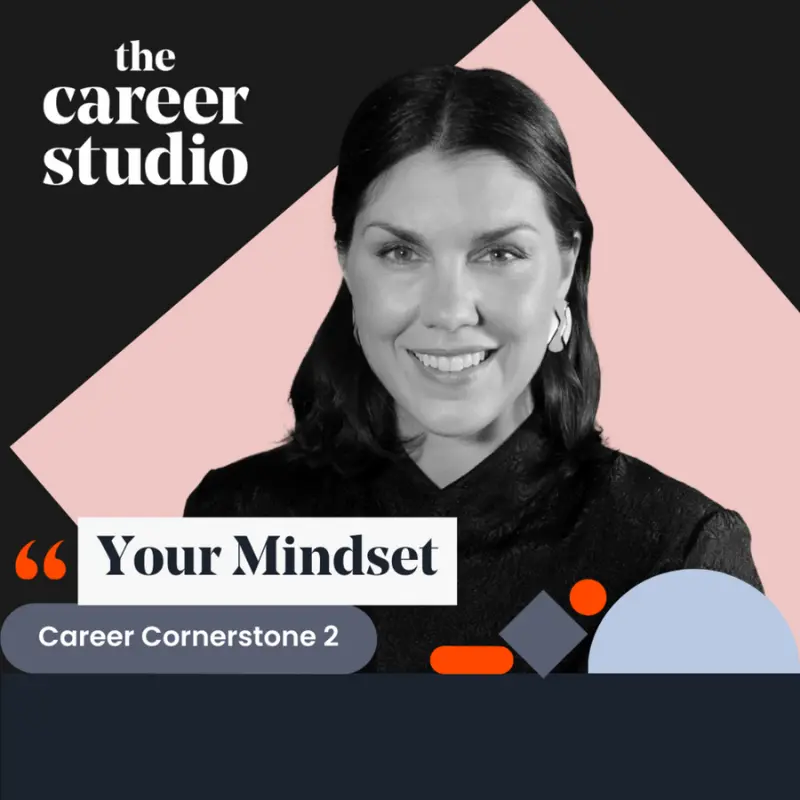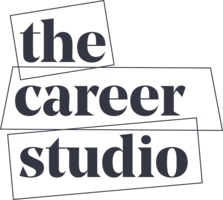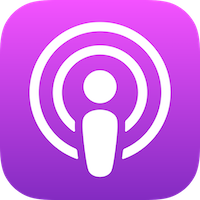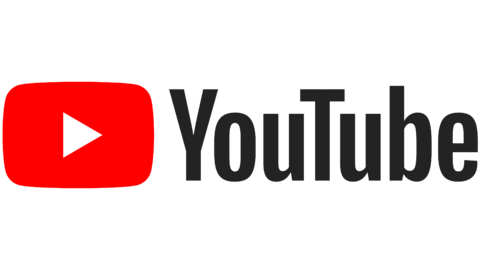Episode 2: Your Mindset - Career Cornerstone 2

When you’re stuck in your career you’re stuck in your mind. But did you know you have agency over the thoughts in your head? You get to choose the narrative and this choice will impact how you feel, how you act, and the results you create for yourself.
In this episode I walk you through the three biggest mindset errors I see that prevent people from going after the things they’re excited about and creating an energizing career they love. We’ll discuss the impact of these perspectives and how to shift out of them into new frames of mind that support you to feel and act in a way that supports your career adjustment.
You’ll learn how to use your brain’s wiring to your advantage and a practical exercise to start to identify and address your limiting beliefs immediately.
You’ll learn in this episode
- The three biggest mindset errors that keep people stuck in their career (and how to move around them)
- The impact of your thoughts on your feelings, actions, and results.
- How to start taking the reins of your mind and managing it in a way that serves you.
- A practical exercise to identify and address your own limiting beliefs immediately.
Are you ready to create an energizing career you love?
You can create a career that is simply an extension of who you are and how you want to live your life. If this sounds like what you’re after then schedule a consultation. We'll get to the bottom of what's going on for you. And exactly where you need to focus to bring your career and life into alignment. It's free!
For more from The Career Studio
Follow me on LinkedIn!
Subscribe my once a week newsletter
Enjoy the show?
- Don’t miss an episode by following The Career Studio on Spotify and follow via Apple Podcasts, Stitcher, or RSS.
- Leave me a review on Apple Podcasts
Transcript
Welcome to the career studio podcast, where we boil down the noise and focus on the core concepts, essential for building an energizing career you love. One that is simply an extension of who you are and how you wanna live your life. Anyone can do it. It's just a matter of knowing what to focus on.
Hi, I'm Anne Benveniste, career coach, and founder of the career studio. Welcome to episode two. All about your mindset. So, as you know, I'm starting off the podcast with an overview of the foundational components, the cornerstones for creating an aligned, energizing and rewarding career. These cornerstones are your brand, your mindset, your people, and your time. And there's a lot of noise out there about how to navigate your career.
So, when work stops working and you don't know how to fix it, where do you start? What do you pay attention to? What do you ignore? How do you navigate that confusion with grace and intention? Instead of hiding and maintaining the status quo or panicking and making a hasty decision? That's what these four cornerstones are all about.
Think of them like the cliff notes for your career, the most essential concepts to understand and apply. If you're gonna create an aligned energizing career you love. They're the areas that need to be addressed first before everything else. There are the chapters in a playbook you can come back to again and again, because inevitably who you are and what you want, will evolve.
If you haven't listened to the brand episode, I recommend you start there. All four areas are equally important, but this is really the foundation of a lot of my work.
Okay. So today we're talking about mindset. And, in general, if you are stuck in your career, it's because you're stuck in your mind. And this is why mindset is one of the cornerstones for creating an aligned, energizing, and fulfilling career.
So, I want to spend the episode introducing the concept, I teach around mindset and then going through some of the biggest mindset traps I see in my clients that keep them stuck. The big insight here to understand is that the circumstances of your life are neutral. You have a certain job with a certain title and responsibilities. Everyday people say things to you, or don't say things to you. People act in certain ways, all of that is neutral. What drives, how you feel about those circumstances is your thoughts about them. It's your interpretation of the things in your life of your reality, your thoughts create your reality.
The thing is we attach to our thoughts as if they're the truth as if they're the only reality. We collect evidence for them so that we think that they're facts when actually they're our interpretation of the facts of our life. So, this is usually where I see people get stuck. They're stuck on a certain interpretation of the facts of their life that doesn't serve them. This interpretation keeps them stuck, not taking action or shutting things down before they've even begun.
The reason your interpretation can keep you stuck is because your thoughts about the facts of your life, your thoughts create how you feel, and then your feelings, your emotions create how you act, and your actions produce your results. Right? So, everything starts with your thoughts. And the thing is most people don't realize the agency they have over what they think, or maybe they do realize, but they aren't actually applying it.
Think about it, right? Your brain can make a case for both sides of any argument. If I asked you to argue for, or against free speech on a platform like Twitter, you could do that. So, you want to use that ability to your advantage. This is how you change your reality, and what's possible for you. By finding the flexibility to tell another side of the story, by being intentional over the story, you tell yourself to create agency over the TV channel that's going on inside your brain.
I really like that analogy of thinking about the thoughts in your mind, like a TV channel, you can always change the channel, and this is where the real power, the real impact comes in because that, the channel you choose in your brain cascades into how you feel and therefore how you act and thus the results you have in your life.
One of my favorite anecdotes I share with my clients comes from what I believe as a Cherokee proverb. At least that's how it was shared with me. So, I will share it with you the same way. And what I love about this anecdote or proverb is I think it, it really beautifully illustrates the point I'm trying to make with the agency of choosing the TV channel you play inside your brain.
So, it goes like this. One evening, an old Cherokee told his grandson about a battle that goes on inside people. He said, "my son, the battle is between two wolves inside us all. One is evil. It's anger, envy, jealousy, sorrow, regret, greed, arrogance, anxiety, self-pity, guilt, resentment, inferiority, lies, false pride, superiority and ego. The other is good. It's joy, peace, love, hope, serenity, humility, kindness, benevolence, empathy, generosity, truth, compassion, and faith". The grandson thought about it for a minute and then asked his grandfather, "which Wolf wins"? And the old Cherokee simply replied, "the one you feed".
So, I love that idea about just the intentionality of feeding the Wolf that you want to thrive. This shows the agency we have over fostering the feelings we want. You have to feed your Wolf by looking at life in a way that cultivates the emotions that you want. If you feed a negative narrative, this is how you're going to experience your life. If you feed something less negative, say neutral or positive, that's gonna be more of the dominant theme.
If you take that one step further, a lot of science has shown us that the brain actually makes better business decisions when it's operating from a positive or even simply a neutral place, instead of a negative place. And I think that's really important. It's a really important nuance because it's not just about toxic positivity, right? It's not just about forcing sunshine and roses that wouldn't be productive. Neutral, having a neutral perspective on things is equally good for making better decisions. Of course, what we're battling against as humans is that we have inherently a negativity bias in our brain, which helped us survive as part of our evolution.
Right, that makes sense. Because leading with what could go wrong, looking for the worst-case scenario is a sure-fire way to stay safer when you're trying to survive in the wilderness. But obviously in the modern world where the threat is relatively slim of being eaten by wild animals or having to find or forage our own food, because we were banished from the tribe. This makes the negativity bias, not so useful. Right. What it does in this environment is just keep us in our comfort zone. It's what feeds us a diet of doom and conspiracy online. So, this is about learning that we actually have agency to take the reins of our thoughts, think of this as perhaps the newest form of evolution, learning how to manage our brain and guide our pattern of thinking in a way that supports the results we want in our life.
This is the concept that's at the heart of the mindset cornerstone and what we're gonna dive deeper in today. With some specific examples. Okay. So now that I've introduced the concept, I wanted to talk in the episode about the three biggest mindset errors that prevent people from getting into alignment that really are preventing them from creating an energizing career they love. And then we'll also talk about how to shift them.
The first perspective is this idea that what I want isn't possible. Could also sound like it's too hard. It's too late. I don't have the right experience. I can't make any money. It comes in all shapes and sizes, but it ultimately ladders up to this belief that, that thing you're kind of thinking about in the back of your mind or toying around with, is impossible for you.
For me, this was totally something I spent time thinking. I had this little inkling for years that I wanted to be a coach. Before I actually started pursuing it. And the reason I delayed pursuing it is because I had all these reasons that it wasn't possible. I was too young. I needed more experience. It seemed hard to navigate. It seemed competitive. Right? And from that perspective, that made me feel unprepared, inadequate, scared. And those emotions aren't exactly super productive because they meant that I didn't explore coaching at all. I shut the door in advance before getting any more information. I just made some assumptions. And instead, I just did things that felt easier.
For example, I went and gotten an MBA, which is not exactly easier, but to me at that time, it felt easier because I believed it was possible. I knew a lot of people who did MBAs. I was very familiar with that. I knew how to do it. And I also believed I had the right experience to do an MBA. So, I just went and did that.
Then I spent two years working at early-stage tech start-ups, not because I was really excited about tech or the products that I was selling, but because I didn't really know what I wanted to do. And I had shut down that one little inkling of what I thought could be fun. Because I believed it wasn't possible for me. And so, I just defaulted into something that was more familiar, more socially sanctioned. That didn't require as much unfamiliar exploration, figuring it out. Going into a tech start-up out of my MBA was relatively easy. Right? There's people, recruiting, tech is a huge industry.
And obviously the results that that behavior created was I spent years out of alignment. I was doing stuff that I wasn't really well suited for, or really that interested in, which made me feel super lost and out of touch with myself. And I, I definitely wasn't thriving. For those three or four years I was doing the MBA and working in tech. So, if this thought pattern resonates with you, know that this narrative of; it's too hard, it's too late, it's not possible. That's just a perspective. It's just one of many TV channels available to you in your brain. And it's a channel that isn't serving you. Because you probably don't know for certain that it isn't possible. It's just an assumption that you've made. And obviously it's a convenient assumption because it means you don't have to actually go out there, talk to people, put yourself out there, figure it out.
It means you have to expend less energy because you just have to stay where you are or stick to what you already know. Which can feel more comfortable to your brain than doing something you've never done before. Okay. So, the reframe here is instead of believing it isn't possible. You wanna focus on this idea that maybe it could be possible.
This is the other side of the argument. If you're on the debate team. If you hold the belief you could create around the thing, you're kind of thinking about. Then what comes up? For me, it's curiosity, creativity, excitement, those kinds of feelings are the ones that need to be present if you're gonna do things like have conversations with people about the idea, explore how it could be feasible to do the thing you're thinking about.
Think about creative ways of approaching, making a move in your career. Those feelings are more motivating. It's more motivating to feel curious, creative, excited than to feel unprepared and inadequate and scared, which is the place that you are, if you're thinking, it's not possible, I'm not ready. I don't have what it takes.
So, when you feel more motivated, you take actions of exploring. You paint a picture of yourself, of what it could look like. And then you can analyse and decide if you actually wanna do it, because what I'm not suggesting is that you just blindly make something happen. But it's about choosing with intention, the mindset that's gonna help you explore the idea with intention so that you can make an informed decision and either dive deeper or decide I'm gonna not explore this any further.
And this is much more helpful to figuring yourself out, feeling more centered, where you are to have done that work than to just assume that it's not possible and always have that inkling of what if, I don't actually know. Which will be the current situation. If you just simply believe it's not possible, without having done the work.
So, the reframe here is to focus on the belief that it could be possible because this is how you get as close as possible. Okay. So that's the big one. The next one I wanna talk about is this idea of, you know, I don't have a passion, or I don't know what my passion is yet. Right? This is another thing I hear a lot of people say to me. I'm not happy where I am, but I don't know what my passion is. And so, I feel lost. And the assumption here is that I need to know what my passion is first. Before I take any action to evolve my career. Now this mindset, this TV channel in your brain, that's gonna make you feel resigned. Right. It's just like, ugh, I don't know. So, there's nothing I can do. Right. And when you feel resigned, you're gonna make do. You're just gonna put up with where you are, because you think there aren't any options because you have to figure out what your passion is first, right?
So, you might as well just do this thing. That's kind of fine, but kind of not great. And you basically don't take action to figure out how you wanna evolve your career. And the result of that is just, you end up treading water in place. Feeling like you might want something else, but not taking any action to do it because you don't know what your passion is. Okay. So obviously the reason I'm bringing this up is cuz it's unproductive.
And the insight here is because passion doesn't arrive one day fully formed and say, Hey, what's up? I'm your passion. Let's go execute on me now. Right. And passion is, it is available to all of us, but instead of waiting for it to arrive one day, finding it requires you to foster your interests. You wanna actively spend time doing the things that interest you. This means talking to people that do things that are interesting, exploring and taking action. Your interests that aren't yet a passion can ultimately become a passion through enough exploration and experience. And even if the interest doesn't become a full-blown passion, well, you've had fun doing it. Maybe it becomes a great hobby. Maybe it just becomes part of your life that you really get a lot of value from.
So, for example, let's say you're interested in crypto. Well, then you wanna intentionally make time to read about crypto, talk to other people about crypto, join a discord group, do a little side project with someone creating an NFT. I don't know. Right? You wanna see how the interest evolves and you might like it so much, you, you go and make a career out of it, or it just might become a project that you do on the side, a hobby.
For me, I was really interested in personal growth, career development. And I started just by reading a lot of books about it. And then I started creating and running workshops for my teams. Then I started doing volunteer coaching on the side. Then I loved that so much I went and got certification. And then I went to work for a training and coaching company. And then finally I decided I was so passionate about the space that I wanted to run my own business.
That narrative, I just told you. That was, you know, 5, 6, 7, 8 years in the making. I was really giving myself time to explore and learn without being committed to knowing if it was a passion or not. And it eventually emerged as one. And obviously, as I mentioned, I could have gotten there a lot faster with less pain if I had caught some of my limiting beliefs in the process, but the reason I'm here now is because I made time to foster this interest in and alongside the other work I was doing.
And really what's most important for creating career alignment is creating this space to foster your interests. Passion is like the gold standard. Passion is maybe the cherry on the cake, but just simply creating a career and life around your interests is still in alignment. It's still gonna feel really energizing. But obviously in order to do that, you have to first believe that it doesn't matter if you have a passion or know what your passion is, you have to let go of that belief. It's okay. That you don't know.
Instead, you wanna believe that what matters most is fostering your interests. If you believe that, you're gonna feel curious, maybe you'll even feel excited. That's gonna help you look for ways to incorporate interest into your life, which will be more fun. You're gonna feel better. You're gonna create more opportunities to do interesting things. And eventually you might even find something you're passionate about. This is the result of switching up the narrative in your brain.
So, to sum this up, if you don't have a passion, don't worry. You do not need one to create a more energizing career. You don't need one to get into alignment. What you do need is to clarify some of the things you're interested in and make space to explore these in both a formal and informal way. See if you can do more things that interest you at work. See if you can start projects on the side, outside of work. Maybe you're doing a little bit of both and exploring multiple interests at the same time. You wanna follow the activities that feel fun. Okay. Eventually a passion may emerge, but regardless you're gonna have fun in the process. And that's really the secret to getting into alignment.
Okay. Third, last, certainly not least today, is this idea that people will judge me. A lot of people are stuck in their career because they're worrying about what other people will think. And this is very related to the concept I brought up in episode one about success formulas. But here you're focusing on the idea that people will judge you in some way for going after this thing, you are exploring you're considering. This was super present for me. Another thing that kept me stuck was that I was worried, people in my life, my parents, my friends, my peers, my colleagues, they would judge me for being a coach. That they think it wasn't a real job. That I couldn't cut it in the corporate world, so I had to become a coach. That I was doing something based on pseudoscience. And if I was really credible, I would've gotten a PhD and become a therapist. These are clearly not true. These are my negative limiting beliefs that I was just projecting onto other people. Usually when we're worried, other people will judge us. It's because we're actually judging ourselves. And of course, these beliefs I had weren't true. They were just my interpretation at the time. They were just my fear.
I've had clients feel they'll be judged by their community for all sorts of potential career decisions they wanted to make. People worried about taking a more corporate finance job or leaving a more corporate finance job. People worried about going into property development or leaving academia. I mean, the list goes on and on, but you can already see that there are loads of contradictions.
Some people are anxious about leaving corporate finance. Then some people are anxious about the judgment they're going to get for entering it. Right. And of course, the fact is these are totally neutral decisions. Academia, property development, finance, law, marketing, I mean, it's neutral. It's just in the construct of their environments. My clients had the perception that their community would judge them. If you're thinking people will judge me, that's gonna make you feel insecure. Right? And when you feel insecure, we take actions that we think will get other people to accept us. We make decisions about the direction of our career based on what we think other people will accept, what looks good. What's gonna get us the green stamp of approval? And I did this. I thought coaching would be really cool, but I didn't think other people would think it's a real job. So, I went and got that MBA instead, which is kind of a socially sanctioned way of figuring myself out.
At least one I was really familiar with, and I thought that would give me a seal of approval. And of course, the result of making decisions for other people is that we get out of alignment with ourselves. We find ourselves doing things that we don't really enjoy, which makes us frustrated or bored or burns us out.
So here, you know, you, you really wanna spend less time in your brain thinking about what other people think. Worried about potential judgements you have, and really you wanna spend more time asking yourself, how does it feel for me? Would it feel fun? Would it feel energizing? If no one could judge me and everyone thought whatever I did was amazing, would I wanna explore this idea?
And really the funny thing is if you just own who you are and what you're interested in. Everyone else will get on board. You just wanna remind yourself that no one else can know what's best for you. It's only something you can know based on how it feels in your body, right? You wanna look for excitement, interest, fun. And when you structure your career around what's fun it gives you energy. You're gonna radiate good vibes. People are gonna pick up on that and they're gonna get behind you. Right. And if they don't, you probably don't want them in your life.
All right. So those are the three mindset patterns I shared today. And these are big ones. And whatever resonated for you, you can start working on it today in the following way. So, pick one of the three mindset traps I went through that most resonates for you and write down all your current thoughts about it. For example, all the reasons why you thought what you want is impossible.
You do this first to build awareness, so you can start to recognize what you're telling yourself that isn't productive. You really wanna get familiar with what the TV channel in your brain sounds like. Then ask yourself, how do these thoughts make me feel? What are the emotions they bring up, then ask yourself, are these emotions serving me?
Probably they're not. Remember the brain makes better decisions from a positive or neutral place. And then you can use some of my suggested alternative, intentional thoughts to begin with. Write these down, add any of your others that you think would be productive and then just choose the ones that are most believable right now. These are the ones you wanna practice thinking, this is your own new TV station. Put them somewhere like a post-it where you can see them. I have loads of post-it's on my computer that remind me of what I wanna practice thinking.
And every time you notice yourself in an unproductive negative space, just be kind to yourself. It's okay. And then gently bring yourself out of that and remind yourself of what you do wanna cultivate and believe instead. This is a muscle you have to build. It requires breaking up with your existing patterns of thought, which really isn't always easy. Breakups are hard. Your brain likes to recycle patterns of thought because it takes less energy. And also, those negative thoughts keep you safe. They don't require a lot of energy from you because you just get to keep doing what you're doing, maintaining the status quo, right? And your brain likes that because it's less energy.
So, practicing thinking a new thought, it's gonna feel foreign. It's maybe even gonna feel a bit uncomfortable, but it's just like going to the gym. The first time is hard. Every time you go, it gets easier. So just keep practicing, keep coming back to the TV station that serves you, carve the new neural pathways against your new set of thoughts because neurons that fire together wire together. So, the more you think about them, the more natural it will feel.
It's okay. That you have negative thoughts sometimes. We all have light and shade inside of us. We all have two wolves. It's just about spending more time feeding the one that supports you. This is the work; you can totally do it. It's just a matter of knowing what to focus on. You have control over what you choose to think and everything else cascades from there.
Hey, if you're ready to create an energizing career you love, one that is simply an extension of who you are and how you want to live your life. Then I wanna invite you to schedule a consultation. We'll get to the bottom of what's going on for you and exactly where you need to focus to bring your career and life into alignment.
It's free. Just head on over to the career.studio/schedule to find a time that works for you. Or if you're enjoying getting value from these episodes, I'd love you to leave a short review on whatever podcast app you use. This helps other people like you find and get value from the podcast too.



